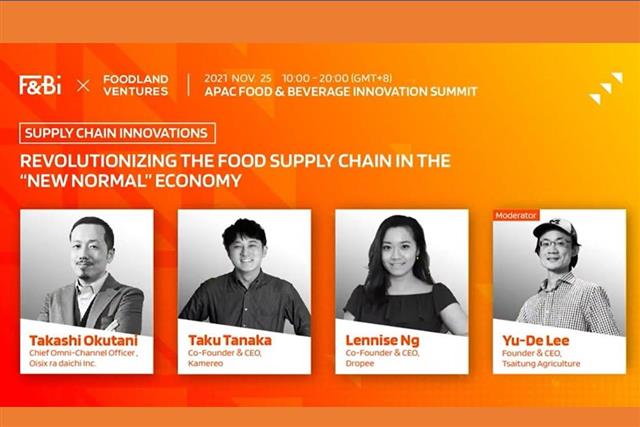The global supply chain went through fundamental changes during the pandemic and these changes are perpetuated by the growing demand for local products – especially for food and beverages. Digitalization in the food supply chain is helping primary producers grow.
While people were confined at home during lockdown, online shopping was one of the dominant daily activities consumers could undertake. But it was not easy to get international products delivered as fast as it used to be with tightening border control and limited working capacity.
Lennise Ng, CEO of Dropee, a Malaysian online B2B wholesaler, said retailers were scrambling to find local substitutes and suppliers as international products were unable to get through. Shopping local is a good trend overall and it has a lower carbon footprint. Demand grew fast and furious. It took local suppliers a couple of months to meet such abrupt demand growth, added Ng, "but it's refreshing for local sellers to see the business grow."
Shop vegetables online
Electronics and general goods are riding the waves of online retail fiesta; however, there's a category of daily essential goods that was struggling to find an outlet during the pandemic – agricultural goods. It turns out that distributing the simplest agricultural goods is the most intricate because fresh produce is seasonal, has a much shorter shelf life, and needs special care whilst being delivered.
After imposing a hard lockdown, the Vietnamese government took quick actions to close hotels, restaurants, and wet markets that were seen as the hotspots that contributed the most COVID infections. The only retail channel that was kept open is the supermarket.
Kamereo, a B2B food supplier in Vietnam who helps farmers connect with end-customers, quickly responded by shifting from selling to restaurants to selling to supermarkets. Even after lockdown, selling to supermarkets remains one of Kamereo's business paths, said Kamereo co-founder Taku Tanaka.
In Vietnam, people usually shop for groceries in mom-and-pop stores and wet markets. When these shops were forced to shut down during the pandemic, people started to get used to shopping for groceries online, especially in big cities. Tanaka said the percentage of modern trade is indeed getting higher and higher than traditional trade in Hanoi and Ho Chi Minh city. Kamereo also plans to start a B2C business in the future.
Southeast Asia has seen e-commerce growth increase at a fast pace in recent years and more so during the pandemic. In Vietnam, the size of the e-commerce industry reached US$11.8 billion in 2020, according to Statista; Malaysia saw a 23% annual increase in e-commerce revenue from January to September this year to US$189 billion, according to The Star.
The pandemic has accelerated growth of online grocery businesses. Japan-based food distributor Oisix ra daichi has seen more and more customers join their platform, particularly the older generation, to buy heavy items and have them delivered to home without taking the risk of being infected.
Ng from Dropee added that changes were slow to happen because most owners of these small traditional shops were unfamiliar with using technologies. The owners were afraid that adopting a new business might somehow make them lose their current business, and the same situation is also observed in Indonesia by Dropee, so Dropee formed teams of community activators to educate small shop owners face-to-face.
Digital transformation in the food supply chain requires broad collaborations between players to build an ecosystem. Ng believed that technology is a great tool that could help small businesses grow and improve.
Quality control
Agriculture still requires a lot of manual work from production to quality control. Tanaka said that one of the problems with selling online is that when customers complain, it's not easy to know at which phase the vegetables had gone bad. To have better quality control, Kamereo plans to build more fulfillment centers right in the farming area so that they can monitor the quality of the produces as early as possible and facilitate two-way communication with the producers.
(Editor's note: Lennise Ng from Dropee, Taku Tanaka from Kamereo, and Takashi Okutani from Oisix ra daichi were speaking jointly at the APAC F&B Innovation Summit 2021 hosted by Foodland Ventures on Nov 25, 2021.)



